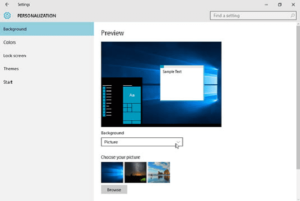Off premises catering- Off-premises catering, also known as off-site catering, refers to a catering service that provides food and beverages for events and functions at locations other than the caterer’s own facility. This type of catering is common for a wide range of events, including weddings, corporate functions, private parties, and more. Here are some key points to understand about off-premises catering:
- Location: Off-premises catering can take place at a variety of locations, such as private homes, event venues, outdoor spaces, or even remote sites. The caterer typically brings all the necessary equipment and food to the event location.
- Customization: Off-premises caterers work closely with their clients to customize menus and services to suit the specific needs and preferences of the event. This could include dietary restrictions, cuisine preferences, and the style of service (e.g., buffet, plated, family-style).
- Logistics: Off-premises catering involves careful logistical planning. Caterers must ensure that the food is prepared and transported to the event site safely and at the correct serving temperatures. They also handle setup and cleanup at the event location.
- Staffing: Caterers often provide experienced staff, including chefs, servers, bartenders, and event coordinators, to ensure a seamless dining experience at the off-site event.
- Equipment and Rentals: Off-premises caterers typically bring their own cooking equipment, serving dishes, and utensils. In some cases, they may also handle rental arrangements for tables, chairs, linens, and other event-related items.
- Licensing and Permits: Catering companies must comply with local health and safety regulations. This often includes obtaining the necessary licenses and permits to prepare and serve food at locations other than their own facilities.
- Variety of Events: Off-premises catering is suitable for various events, including weddings, corporate meetings, fundraisers, holiday parties, and more. The services can range from casual and budget-friendly to upscale and formal.
- Cost: The cost of off-premises catering varies depending on factors such as the menu, the number of guests, the complexity of the event, and the location. It’s essential for clients to discuss their budget with the caterer and agree on pricing details in advance.
- Tasting and Planning: Many caterers offer tastings and planning sessions to help clients select their menus, discuss event details, and ensure the catering experience meets their expectations.
Off-premises catering provides a convenient and professional way to cater events held in various locations. Clients benefit from the expertise and experience of the catering company in creating memorable dining experiences, without the need for a dedicated event venue.
What is Off premises catering
Off-premises catering, often referred to as off-site catering, is a type of catering service where food and beverages are prepared and served at a location other than the caterer’s own facility. In off-premises catering, the catering company brings all the necessary resources, including food, equipment, staff, and sometimes even decor, to an external venue or event space to cater to a specific event. This type of catering is commonly used for a wide range of events, from weddings and corporate functions to private parties and outdoor gatherings.
Here are some key characteristics of off-premises catering:
- Customization: Off-premises caterers work closely with their clients to create customized menus and services tailored to the specific needs and preferences of the event, such as dietary restrictions, cuisine choices, and service styles.
- Logistics: Off-premises catering involves thorough logistical planning. Caterers must ensure that the food is prepared, transported, and served at the event location safely and at the correct temperatures. This includes considerations for food safety and timing.
- Staffing: Off-premises caterers typically provide trained staff, including chefs, servers, bartenders, and event coordinators, to ensure a smooth and professional dining experience at the off-site event.
- Equipment and Rentals: Caterers often supply their own cooking equipment, serving dishes, utensils, and, in some cases, coordinate with rental companies to provide tables, chairs, linens, and other event-related items.
- Licensing and Permits: Catering companies are responsible for obtaining the necessary licenses and permits to adhere to local health and safety regulations when preparing and serving food at locations other than their own facilities.
- Variety of Events: Off-premises catering can accommodate various types of events, including formal and informal gatherings, large and small parties, and both indoor and outdoor venues.
- Cost: The cost of off-premises catering can vary widely based on factors such as the menu, the number of guests, the complexity of the event, and the location. It’s important for clients to discuss their budget with the caterer and establish pricing details in advance.
- Tasting and Planning: Many caterers offer tastings and planning sessions to assist clients in selecting menus, discussing event details, and ensuring the catering experience aligns with their expectations.
Off-premises catering offers a convenient and professional solution for catering events held in various locations. Clients benefit from the expertise and experience of the catering company in creating memorable dining experiences without the need for a dedicated event venue.
Who is Required Off premises catering
Off-premises catering services are typically utilized by individuals, businesses, or organizations that are hosting events or gatherings at locations other than their own. Here are some common scenarios and entities that often require off-premises catering:
- Private Individuals:
- Weddings: Couples often hire off-premises caterers to provide food and beverages at wedding receptions held at event venues, private homes, or outdoor locations.
- Birthday Parties: People celebrating significant birthdays, such as milestone birthdays or children’s birthdays, may opt for off-premises catering to simplify food service.
- Corporate Events:
- Business Meetings: Companies often arrange off-premises catering for meetings, seminars, and conferences to provide breakfast, lunch, or snacks for attendees.
- Office Parties: Businesses may host holiday parties, retirement celebrations, or other corporate events off-site and utilize catering services for these occasions.
- Product Launches: Companies may host product launches, promotional events, or client appreciation events that require catering services at external venues.
- Nonprofit and Fundraising Organizations:
- Fundraisers: Nonprofit organizations often host fundraising events, galas, or charity dinners at various event locations that require off-premises catering.
- Award Ceremonies: Organizations hosting award ceremonies or recognition events often opt for off-premises catering to ensure a well-executed event.
- Educational Institutions:
- Graduation Parties: Schools, colleges, and universities may arrange off-premises catering for graduation parties held at external venues.
- Alumni Events: Alumni associations may use catering services for reunions, networking events, and homecoming celebrations.
- Event Planners and Venues:
- Event Planners: Professional event planners often work with off-premises caterers to offer their clients a wide range of catering options for weddings, parties, and corporate events.
- Event Venues: Many event venues partner with or have in-house catering services to cater to a variety of events held at their locations.
- Healthcare Facilities and Nursing Homes:
- Healthcare facilities and nursing homes may use off-premises catering for special events, resident celebrations, or holiday meals.
- Religious Organizations:
- Religious institutions may hire off-premises caterers for religious festivals, holiday celebrations, weddings, and other special events.
- Cultural and Community Organizations:
- Cultural and community centers often host cultural festivals, art exhibitions, and community gatherings that require catering services.
- Sports and Athletic Events:
- Sports teams and athletic organizations may arrange off-premises catering for athlete banquets, fan events, and fundraisers.
In summary, off-premises catering is a flexible service used by a wide range of individuals, businesses, and organizations to provide food and beverages for events held at external venues. The specific requirements and preferences for off-premises catering can vary significantly depending on the type and scale of the event.
When is Required Off premises catering

Off-premises catering may be required or preferred in various situations and events where hosting the gathering or event at an external location is necessary, more convenient, or better suited to the occasion. Here are some common situations and events when off-premises catering might be needed:
- Weddings: Many couples opt for off-premises catering when hosting their wedding receptions at event venues, private homes, or outdoor locations.
- Corporate Events: Businesses often require off-premises catering for events like business meetings, conferences, seminars, and office parties, which are held at external venues.
- Private Parties: Celebrations such as milestone birthdays, anniversaries, family reunions, and graduation parties are often hosted at homes or event spaces and may necessitate off-premises catering.
- Holiday Celebrations: Many people choose off-premises catering for holiday gatherings, such as Thanksgiving, Christmas, and New Year’s Eve parties.
- Nonprofit and Fundraising Events: Fundraisers, galas, charity dinners, and award ceremonies held at external venues often use off-premises catering.
- Educational Institutions: Graduation parties, alumni events, and special ceremonies for schools, colleges, and universities may require off-premises catering.
- Event Planning: Event planners often require off-premises catering services to cater to a wide range of events they organize, including weddings, corporate events, and private parties.
- Religious and Cultural Celebrations: Religious institutions may require off-premises catering for religious festivals, holiday celebrations, and weddings. Cultural centers often host events like art exhibitions and community gatherings that may require catering.
- Healthcare and Nursing Homes: Healthcare facilities and nursing homes may use off-premises catering for special resident celebrations, holiday meals, or events.
- Sports and Athletic Events: Sports teams and athletic organizations may arrange off-premises catering for athlete banquets, fan events, and fundraising functions.
- Outdoor Events: Events held in outdoor spaces, such as parks, gardens, or beaches, often rely on off-premises catering due to the absence of on-site facilities.
- Remote or Unconventional Locations: Events held in remote or unconventional locations, such as farms, barns, historic buildings, or private estates, may require off-premises catering.
- Limited Facilities: In some cases, the event venue may have limited kitchen facilities or no catering services, making off-premises catering a necessity.
- Large Gatherings: Events with a large number of attendees, like concerts, festivals, and public gatherings, often rely on off-premises catering for food and beverage services.
- Situations Requiring Specialized Cuisine: When the event calls for specific ethnic or specialized cuisine, clients may seek off-premises caterers with expertise in those areas.
It’s important to consider the specific needs and preferences of the event when determining whether off-premises catering is required or advisable. The choice of catering style, menu, and service will depend on the nature and scale of the event, as well as the location and logistical considerations.
Where is Required Off premises catering
Off-premises catering can be required and is commonly used in a variety of locations and venues where hosting an event or gathering is desirable, but the facility lacks a dedicated kitchen or catering services. Here are some typical places where off-premises catering may be required:
- Private Residences: Off-premises catering is often used for events hosted at private homes, such as weddings, birthday parties, and anniversary celebrations.
- Event Venues: Many event venues, including banquet halls, ballrooms, and outdoor event spaces, partner with or allow external catering companies to provide services for weddings, corporate events, and other functions.
- Corporate Offices: Businesses that lack on-site kitchens or catering facilities may use off-premises catering for corporate meetings, training sessions, and office parties.
- Outdoor Locations: Parks, beaches, gardens, and other outdoor settings often rely on off-premises catering for events like picnics, outdoor weddings, and festivals.
- Community Centers: Cultural and community centers may host events like cultural festivals, art exhibitions, and community gatherings that require off-premises catering.
- Religious Institutions: Churches, synagogues, and mosques may require off-premises catering for events like religious festivals, wedding receptions, and holiday celebrations.
- Schools and Universities: Educational institutions may use off-premises catering for graduation parties, alumni events, and special ceremonies held in campus event spaces.
- Public and Historic Buildings: Events held in historic or public buildings, like museums and libraries, often require off-premises catering due to limited or no on-site kitchen facilities.
- Healthcare Facilities and Nursing Homes: Healthcare facilities may use off-premises catering for resident celebrations and special events held within their premises.
- Sports and Athletic Facilities: Sports teams and athletic organizations may arrange off-premises catering for athlete banquets, fan events, and fundraising functions at sports venues.
- Remote Locations: Events held in remote or unconventional locations, such as farms, barns, wineries, or private estates, may rely on off-premises catering.
- Entertainment and Concert Venues: Concert halls, theaters, and other entertainment venues that don’t have in-house kitchens may use off-premises catering for events like backstage catering, VIP receptions, and corporate gatherings.
- Public Spaces: Public events, festivals, and gatherings in public parks or city squares often require off-premises catering for food and beverage services.
- Convention Centers: Large-scale conventions, trade shows, and conferences may utilize off-premises catering services within convention centers that allow external vendors.
- Cruise Ships and Boats: Cruise ships and private boats may require off-premises catering for special events, weddings, and private cruises.
Off-premises catering is adaptable to a wide range of venues, and catering companies are equipped to provide the necessary services and equipment for these locations, making it a versatile option for a variety of events and gatherings.
How is Required Off premises catering
“Required off-premises catering” refers to a situation in which off-premises catering services are necessary or mandated for a particular event or gathering due to specific circumstances or limitations. Here’s how required off-premises catering works and some common scenarios in which it is needed:
- Event Planning: Event planners and hosts determine the need for off-premises catering based on the type and location of the event. They assess whether the chosen venue lacks adequate kitchen facilities, and whether bringing in an external caterer is essential.
- Venue Limitations: Some event venues do not have on-site kitchens or catering services. In such cases, off-premises catering is required to provide food and beverage service.
- Regulatory Requirements: Local health and safety regulations may require off-premises catering in certain situations to ensure food safety and compliance with health codes. This could be the case if a venue lacks proper kitchen facilities or certification.
- Specialized Cuisine: When the event calls for specific or specialized cuisine not available at the venue, hosts may require the expertise of an off-premises caterer known for that cuisine.
- Logistical Considerations: The logistics of preparing, transporting, and serving food at a specific location may necessitate off-premises catering. This could include events in remote or outdoor locations.
- Menu Customization: Hosts may prefer a customized menu to suit the event’s theme or guest preferences, which is often best achieved through off-premises catering.
- Large Gatherings: Events with a high number of guests, such as weddings or corporate conferences, may require the services of off-premises caterers equipped to handle the scale of the event.
- Private Residences: Many events hosted at private homes require off-premises catering because residential kitchens may not be suitable for large-scale catering.
- Religious or Cultural Needs: Certain religious or cultural events have specific dietary requirements or traditions that off-premises caterers can accommodate.
- Outdoor or Non-Traditional Venues: Off-premises catering is often essential for events held in non-traditional venues like farms, barns, historic buildings, or open-air locations where kitchen facilities are not available.
- Institutional Events: Schools, universities, healthcare facilities, and nursing homes may require off-premises catering for special events when their own kitchens or facilities are not suitable.
- Corporate Policies: Some businesses have policies that dictate the use of off-premises caterers for corporate events held at external locations.
- Budget and Preferences: Hosts may choose off-premises catering based on their budget and specific preferences for food and service style.
When required, off-premises catering involves careful planning, coordination, and communication between the host and the catering company. The catering company is responsible for providing not only food but also the necessary equipment, staff, and expertise to ensure a successful and memorable event at the chosen location.
Case Study on Off premises catering
Elegant Garden Wedding Reception
Background: A reputable catering company, “Gourmet Delights Catering,” specializes in off-premises catering for a wide range of events. They have been approached by a couple, Sarah and Michael, who are planning an elegant garden wedding reception for 150 guests. The couple has chosen a beautiful garden as the venue for their reception, which lacks kitchen facilities, and they’ve requested an elaborate menu with a variety of gourmet dishes.
Challenges:
- Limited Facilities: The garden venue lacks a kitchen, which presents a significant challenge for food preparation and service.
- Outdoor Setting: Outdoor events are subject to unpredictable weather conditions, which may impact food service and guest comfort.
- Customized Menu: The couple desires a menu featuring a diverse range of gourmet dishes, which will require extensive preparation and careful coordination.
- Guest Expectations: As the event is a wedding reception, the couple expects the highest level of service and a seamless dining experience for their guests.
Strategy:
1. Initial Consultation: Gourmet Delights Catering arranges a comprehensive meeting with the couple to understand their vision, preferences, and dietary requirements. They discuss the challenges of the garden setting and the need for off-premises catering.
2. Menu Planning: The catering company’s chefs work closely with Sarah and Michael to create a tailored menu. They prioritize dishes that can be prepared off-site, transported safely, and served in an outdoor setting. Menu items include gourmet appetizers, a plated dinner, and a dessert buffet.
3. Equipment and Staffing: Gourmet Delights Catering ensures they have the necessary equipment, including mobile cooking stations, chafing dishes, and refrigeration, to maintain food quality. They also hire a professional service team, including chefs, servers, and bartenders, experienced in off-premises catering.
4. Food Safety and Preparation: The catering company follows strict food safety protocols to maintain food quality during transport and service. Food preparation begins at their facility, with final touches and assembly taking place on-site.
5. Weather Contingency: Given the outdoor location, Gourmet Delights Catering prepares for potential weather-related issues by having backup plans and suitable shelter for food service. They also consider temperature-sensitive menu items.
6. Timing and Coordination: Careful event planning and coordination are essential. The catering team arrives early to set up, ensuring that the food is prepared, presented, and served on schedule. They work closely with the event planner to synchronize the catering with the overall event timeline.
7. Guest Experience: Gourmet Delights Catering focuses on creating an exceptional guest experience, offering professional service and attention to detail, such as personalized plating and presentation.
8. Cleanup and Removal: After the event, the catering company efficiently clears the site, removing all equipment and waste, leaving the garden venue in the same condition as before.
Outcome:
The garden wedding reception is a resounding success. Gourmet Delights Catering overcomes the challenges of limited facilities and an outdoor setting, providing the couple and their guests with a memorable dining experience. The customized menu, attention to detail, and professional service contribute to the success of this off-premises catering event, leaving a lasting impression on the couple and their guests.
This case study exemplifies the careful planning, adaptability, and expertise required in off-premises catering to ensure a seamless and memorable event, even in challenging settings.
White paper on Off premises catering
Table of Contents
Executive Summary
- Introduction to off-premises catering.
- The growing demand for off-premises catering services.
- The significance of this white paper.
Section 1: Understanding Off-Premises Catering
- Definition of off-premises catering.
- Distinctions between on-premises and off-premises catering.
- Historical overview of off-premises catering.
Section 2: The Off-Premises Catering Process
- The step-by-step process of off-premises catering.
- Initial consultation and event planning.
- Menu creation and customization.
- Equipment and staffing requirements.
- Food safety and logistics.
- Execution of the event.
- Cleanup and post-event analysis.
Section 3: Challenges in Off-Premises Catering
- Limited facilities and lack of on-site kitchens.
- Weather-related challenges in outdoor settings.
- Customization of menus.
- Timing and coordination.
- Maintaining food safety and quality.
- Meeting client expectations.
Section 4: Best Practices in Off-Premises Catering
- Conducting thorough initial consultations.
- Menu planning and diversification.
- Equipping the catering team for success.
- Adhering to food safety protocols.
- Weather contingency planning.
- Streamlining event execution and coordination.
- Ensuring an exceptional guest experience.
- Efficient post-event cleanup and removal.
Section 5: Market Trends and Opportunities
- Emerging trends in off-premises catering.
- Expanding markets and customer segments.
- Leveraging technology for business growth.
Section 6: Case Studies
- Real-world case studies highlighting successful off-premises catering events.
- Detailed analysis of challenges and strategies.
Section 7: Conclusion
- Summarizing the key takeaways from the white paper.
- The future of off-premises catering and potential innovations.
Appendices
- Resources, references, and additional reading materials.
- Glossary of terms related to off-premises catering.
- Industry statistics and data.
This white paper serves as a comprehensive resource for anyone interested in the field of off-premises catering. It provides insights into the processes, challenges, and best practices that caterers and event planners can employ to ensure the success of events held at external venues. Additionally, it offers a glimpse into the future of off-premises catering, highlighting emerging trends and opportunities in this dynamic industry.





